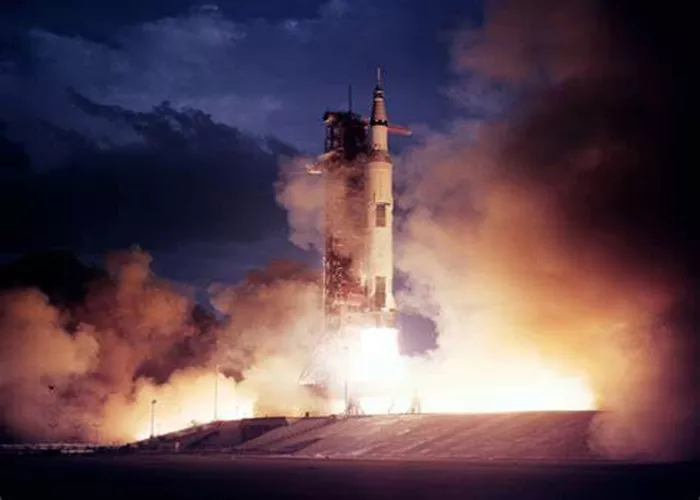February 11 holds significance in American history, marked by various events that reflect the social, political, and cultural evolution of the nation. This article explores notable occurrences on this date, providing detailed accounts of each event while maintaining clarity for readers.
What Happened on February 11 in American History?
1. The Birth of Thomas Edison (1847)
On February 11, 1847, Thomas Edison was born in Milan, Ohio. Edison would go on to become one of America’s most prolific inventors and entrepreneurs. He is best known for his inventions of the phonograph, the incandescent light bulb, and the motion picture camera. Edison’s work laid the foundation for modern electric power generation and distribution.Edison’s early life was marked by challenges; he was partially deaf and had a tumultuous education. However, his curiosity and inventive spirit drove him to experiment with various technologies. By the age of 22, he had patented his first invention—a vote recorder. This initial success propelled him into a career that would see him hold over 1,000 patents.Edison established the Edison Electric Light Company in 1880, which played a crucial role in bringing electric lighting to homes and businesses across America. His contributions not only transformed daily life but also spurred economic growth during the Industrial Revolution.
2. The Founding of the National Association for the Advancement of Colored People (NAACP) (1909)
February 11, 1909, marks the founding of the NAACP in New York City. This organization was established in response to the ongoing violence against African Americans and is one of the oldest civil rights organizations in the United States. The NAACP aimed to fight for civil rights through legal challenges and public advocacy.The founding members included a diverse group of individuals, both black and white, who were committed to fighting racial injustice. Among them were W.E.B. Du Bois and Ida B. Wells, who played significant roles in shaping the organization’s mission.The NAACP’s early efforts focused on challenging segregation laws and advocating for voting rights. Over the decades, it became instrumental in landmark cases such as Brown v. Board of Education (1954), which declared racial segregation in public schools unconstitutional.
3. Nelson Mandela’s Release from Prison (1990)
While not an American event per se, Nelson Mandela’s release on February 11, 1990, had profound implications for civil rights movements worldwide, including those in the United States. After spending 27 years imprisoned for his anti-apartheid activism in South Africa, Mandela’s release symbolized hope for oppressed peoples everywhere.Mandela’s commitment to non-violence and reconciliation inspired many American civil rights leaders who were fighting against racial discrimination. His leadership during South Africa’s transition from apartheid to democracy resonated with activists advocating for equality in America.The impact of Mandela’s release was felt globally; it prompted discussions about human rights and justice that echoed throughout American society during a time when racial tensions were still prevalent.
4. The Death of Sylvia Plath (1963)
On February 11, 1963, renowned American poet Sylvia Plath died by suicide at the age of 30. Plath is celebrated for her confessional style of poetry that delves into themes of identity, mental illness, and female experience. Her most famous work, “The Bell Jar,” is a semi-autobiographical novel that explores her struggles with depression.Plath’s literary contributions have had a lasting influence on American literature and feminist discourse. Her work continues to be studied for its emotional depth and innovative use of language. Plath’s tragic death has also sparked discussions about mental health awareness and the pressures faced by artists.
5. The Launch of Apollo 14 (1971)
February 11, 1971, marked a significant achievement in space exploration with the launch of Apollo 14. This mission was notable for being the third successful manned mission to land on the Moon. Astronauts Alan Shepard, Edgar Mitchell, and Stuart Roosa were part of this historic journey.Apollo 14 aimed to explore the Fra Mauro region of the Moon and conduct scientific experiments. Shepard famously hit two golf balls on the lunar surface during this mission—an act that captured public imagination.The mission lasted nine days and returned valuable data about lunar geology. It reinforced America’s commitment to space exploration during a time when competition with the Soviet Union was at its peak.
6. The Establishment of National Inventors’ Day (1983)
In recognition of Thomas Edison’s birthday on February 11, President Ronald Reagan proclaimed National Inventors’ Day in 1983. This day honors inventors who have contributed significantly to American innovation and technology.National Inventors’ Day serves as a reminder of the importance of creativity and invention in driving progress within society. It encourages young people to pursue careers in science, technology, engineering, and mathematics (STEM).Celebrating this day highlights how inventors like Edison have shaped modern life through their groundbreaking ideas and inventions.
7. The Death of Whitney Houston (2012)
February 11 is also remembered as the day Whitney Houston passed away in 2012 at age 48. Houston was an iconic singer and actress known for her powerful voice and numerous hits such as “I Will Always Love You.” Her contributions to music made her one of the best-selling artists of all time.Houston’s death shocked fans worldwide and sparked discussions about substance abuse issues within the entertainment industry. Her legacy continues through her music and influence on future generations of artists.
Conclusion
February 11 has been pivotal in shaping various aspects of American history—from technological advancements led by Thomas Edison to significant social movements represented by organizations like the NAACP. Each event reflects broader themes within American society: innovation, civil rights advocacy, artistic expression, space exploration, and recognition of individual contributions.As we reflect on these events each year on February 11, we are reminded not only of their historical significance but also their ongoing relevance in contemporary discussions about equality, creativity, and human achievement.
Related Topics:

